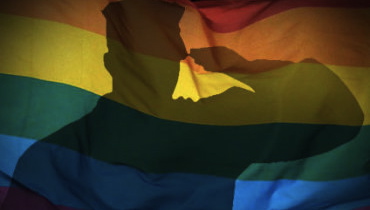
NCLR Guest Columnist
Year: 1994
How lucky am I? A little over two years ago, I was up a creek without a paddle. No money for school, no way to get out of town, no escape from my family dysfunction. Today, I’m living my American dream. The one I’ve been yearning for since leaving Vietnam for the land of opportunity. Of course, it’s not the rags-to-riches-Hollywood-movie kind. Or an awe-inspiring-Nobel-Peace-Prize kind. My dream is modest, like most. But the best part is that it’s entirely mine. Imagine a refugee of the American War becoming a soldier in the greatest military in the world. My American dream fulfilled — all because I joined the military. And that’s not hyperbole. At first, I joined to pay for school — now, I’m staying for entirely different reasons.
~~~
Days after high school graduation in 1992, I was on my way to Fort Lost in the Woods—also known as Fort Leonard Wood, Missouri—for basic combat training. A plane, a bus, and the world as I knew it all but disappeared.
The process by which civilians are turned into soldiers is called soldierization. The beginning stages involve pushing the body to submission, while simultaneously expelling all notion of individuality from the mind. Thereafter, the body heals stronger, and the mind is taught to prioritize nation, mission, and unit over self. It’s amazing how people—the vast majority of whom are impressionable young adults—can be pushed, pulled, and molded into fighting machines in such a short period of time, isolated from family and friends.
About a month into training, the process was nearly complete, at least for me. I was sitting with my fellow soldiers, waiting for hand grenade instruction to begin. A drill sergeant sauntered over, reached for a grenade, pulled out the pin, and tossed it on the ground in front of us. Without a thought, I threw myself on top of it. Breath held, eyes shut tight, body taut, adrenaline coursing through my veins— waiting.
Several seconds later, I realized it wasn’t going to explode and got off the ground, slowly. I looked down at my hands, shaking, and thought, “I did the right thing.”
By graduation, I had found my identity. All the scattered pieces of my former self coalesced into a new being, with a new way of living. I was no longer alone. I belonged to a community. I had a sense of purpose, a new ethos. The ceremony aptly ended with a song by Lee Greenwood, which made the entire class weep like babies.
“I’m proud to be an American where at least I know I’m free,
And I won’t forget the men who died who gave that right to me,
And I gladly stand up next to you and defend her still today,
‘Cause there ain’t no doubt I love this land—God Bless the U.S.A.”
~~~
Now, in 1994, that feels like a lifetime ago. Life is good now. I’m engaged to a military brat I met at Advanced Individual Training in Fort Sam Houston, Texas. In addition to drilling with my Army National Guard unit as a combat medic one weekend a month, I’m also enrolled in the Army Reserve Officer Training Corps program and receiving scholarship funds from them to pay for tuition. I pay for room and board with a job as a resident assistant. And I have a plan for the next 20 years—attend medical school, become a military doctor, retire with full pension, open a medical clinic serving the poor, and maybe adopt a kid or three along the way.
Hello world, I’m a comin’, and (cue Hammer) “U Can’t Touch This!”
`
NCLR Guest Columnist Huong T. Nguyen has shared her military dismissal under “Don’t Ask, Don’t Tell” through her weekly diary blog series. Read Part One: Where There’s a Will, There’s a Way, Part Two: Light Bulb, Part Three: A New Identity, Part Four: The Education of Private Nguyen, Part Five: The Girl, Part Six: No Air, Part Seven: The Truth Will Set You Free, Part Eight: The Trial, Part Nine: The Story, Part 10: There’s A Place For Us, Part 11: The Repeal: No One Left Behind,and Finale: Don’t Ask, Don’t Tell”: In the Olden Days.
`
Nguyen is an attorney in the San Francisco Bay Area, where she resides with her wife and two children.









